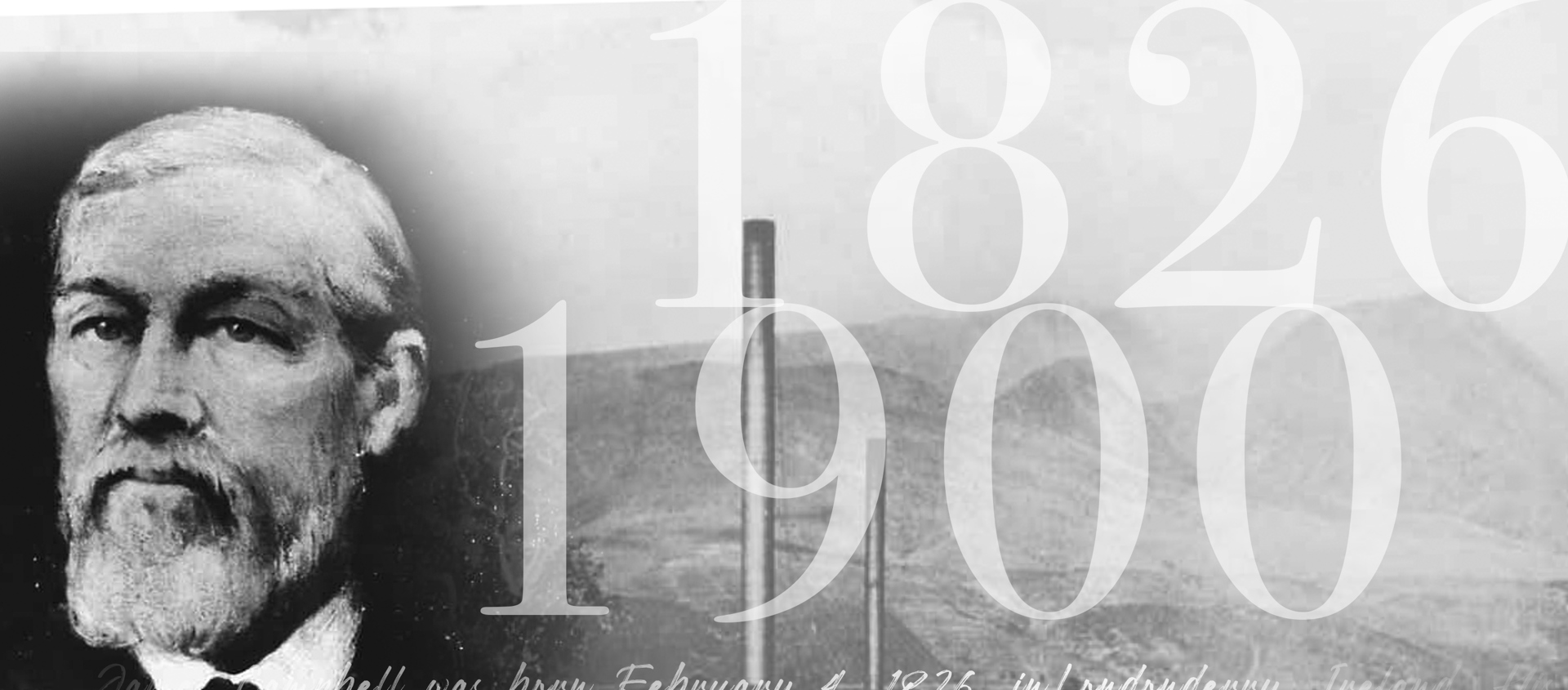James Campbell Football - Crafting A Narrative
Thinking about stories, especially those that stick with you, it's often the people at their core that make all the difference. When we talk about someone like James Campbell, perhaps a figure connected to the sport of football, there are so many ways to bring his experiences to life on the page, or even just in conversation.
You know, it's pretty interesting how a character, even one who might seem quiet at first, can still leave a big impression. We might wonder about his personal journey, the things that shaped him, and how he came to be involved with the sport. It's almost like piecing together a puzzle, trying to see the full picture of someone's life, especially if they are involved in something as dynamic as football.
This kind of exploration, whether we are reading about it or imagining it for ourselves, really lets us consider the different elements that go into building a compelling story. We can think about the little details, the moments of chance, and the way a person's inner thoughts might shape their outer actions, particularly when we think about a character like James Campbell and his connection to football.
Table of Contents
- Crafting a Character - The Quiet Start of James Campbell Football
- Hypothetical Character Profile - James Campbell Football
- What's in a Name - James Campbell Football and Possessive Forms?
- The Role of Chance - How Luck Shapes James Campbell Football Stories
- Asking Questions - Pondering James Campbell Football Moments
- Different Voices - Exploring James Campbell Football Narratives
- Genre Blends - Is James Campbell Football a Horror Story?
- Personal Connections - James Campbell Football and Life's Ups and Downs
- Plot Twists - The Unforeseen in James Campbell Football Tales
Crafting a Character - The Quiet Start of James Campbell Football
When we set out to create a character for a story, like someone involved with James Campbell football, we often think about their personality, their background, and how they express themselves. It's really something to consider a main figure who, for the early parts of his story, spanning the first few sections of the book, holds his peace, remaining silent. This individual, a man named James, doesn't utter a word during these initial pages, primarily because he has no one to speak with. This choice for a character, especially one tied to a high-energy sport like football, can be quite powerful. It makes you wonder about his inner world, his private thoughts, and the reasons behind his silence. Perhaps his quiet nature is a reflection of a deep focus, or maybe it hints at a time of solitude before he finds his place within a team or a community. It gives a writer, you know, a chance to show rather than tell, letting actions or even just his presence speak volumes.
Hypothetical Character Profile - James Campbell Football
For those of us putting together a story about someone like James Campbell and his life in football, having a basic sketch of who he is can be quite helpful. This isn't about a real person, but more like a starting point for imagination, a way to build a believable figure within a story. Here's a little idea of what that might look like:
| Name | James Campbell |
| Role in Story | Main figure, possibly a player or coach involved with football |
| Key Trait | Initially reserved, communicates through action or observation |
| Early Life Influence | Periods of quiet contemplation, perhaps a solitary childhood |
| Connection to Football | Driven by an inner passion for the game, finds his voice or purpose through it |
| Potential Conflict | Overcoming personal hurdles, finding his place in a team setting |
This kind of simple profile helps to keep the character consistent as the story unfolds. It gives a writer, sort of, a framework to build upon, ensuring that every action and reaction feels true to the character we are trying to portray, especially if that character is James Campbell and his connection to football.
What's in a Name - James Campbell Football and Possessive Forms?
When we are writing about someone like James Campbell and his connection to football, even small details about how we use his name can matter. You see, when it comes to showing ownership with a name like James, there are a couple of common ways to do it, based on what I learned back in my school days. One way is to simply add an apostrophe and then an 's' to the word, because it's a single person. So, you'd write "James's jersey" or "James's amazing play on the field." There's also the option of just adding an apostrophe after the 's' if the name already ends in 's', but for a singular name like James, the 's-apostrophe-s' is often preferred. It's a bit of a choice, really. Many well-known storytellers, for instance, use different names for their published works, like J.K. Rowling who writes for young people but also uses the name Robert Galbraith for grown-up thrillers. Nora Roberts, who writes romantic tales, also uses the name J.D. Robb for other kinds of stories. These choices in naming, whether it's a writer's pen name or how we show possession for a character like James Campbell and his football gear, really depend on what feels right for the overall feel and tone of the story you're trying to tell. It's about finding the best fit, you know, for the voice you want to convey.
The Role of Chance - How Luck Shapes James Campbell Football Stories
It's interesting to think about how much of life, and thus how much of a story, is shaped by plain good fortune or even bad breaks. For a character like James Campbell in a football narrative, moments of luck can play a very big part. It was, you might say, a fortunate turn of events that brought him into the story, or perhaps even into the sport itself. We often see how seemingly random occurrences can alter a person's path, bringing them into contact with others, or opening up new possibilities. The way things just happen, sometimes, can really direct the flow of a person's life. So, when we think about the story of James Campbell and his football experiences, it's pretty clear that these unexpected moments, these strokes of luck, could be what truly set things in motion. It's about finding which of these chance happenings best suits the overall mood and feeling of the tale being spun, allowing the narrative to unfold in a believable way. It's a way, too, of making the story feel more like real life, where things aren't always planned out.
Asking Questions - Pondering James Campbell Football Moments
When you're writing a story, especially one in the third person, about a character like James Campbell and his football journey, a question can pop up in a paragraph. Then you have to think, where does the question mark go if you're also mentioning what James was thinking? For example, if you're writing, "Was that the right call, James thought," you have to decide if the question mark goes before or after the "James thought" part. Or, you know, should you just leave out the "James thought" bit entirely and let the question hang in the air for the reader to consider? This sort of thing comes up a lot in discussions about the nuts and bolts of writing, like the one started by James E. on January 24, 2019, about word mechanics. It's a choice that can really affect how the reader experiences the character's inner thoughts and the flow of the story. It's about finding the right rhythm for the narrative, making sure the reader understands whose question it is, or if it's just a general query posed by the story itself.
Different Voices - Exploring James Campbell Football Narratives
When you're telling a story, the voice you choose makes a big difference. Someone might want an introduction to be in the first person, giving a very personal feel, but then shift to another perspective later on. This is a common point of conversation among writers, like the one about James Burke and the end of scarcity, started by Matwoolf on January 5, 2018, in a general discussion area. It's about how you want the reader to experience the story. For a story about James Campbell and his football experiences, you could have him tell part of it directly, from his own viewpoint, letting us into his head. Then, perhaps, the story could switch to an outside observer, giving a broader view of the action on the field or the team's dynamics. Or, you know, you might consider how other authors, like James Maxwell with his Evermen Saga, or Jeff Wheeler with his Muriwood books, use short breaks between chapters to reveal extra details. These little interludes can be a clever way to show things that the main character, James Campbell, might not know, or to offer a different angle on the football world he inhabits. It's all about playing with perspective to make the story richer.
Genre Blends - Is James Campbell Football a Horror Story?
It might seem strange to connect James Campbell football with something like horror fiction, but when you think about it, stories can sometimes cross boundaries in unexpected ways. Within the broad idea of horror, including what people call "weird fiction," there's a lot of talk about the differences between supernatural elements and other kinds of unsettling situations. What do people really think about those distinctions? Could a story about James Campbell and his football career have moments that feel a bit like horror? Maybe not with ghosts or monsters, but perhaps with the intense pressure, the fear of failure, or the unsettling feeling of a game slipping away. It's a thought, anyway. A story set in the 19th century, for instance, involving a ship smuggling things, can hit a wall in its plot. This kind of plot block can happen in any story, even one about football. You might be writing about James Campbell, and suddenly you're stuck on how to move the story forward, or how to create tension that feels a bit unnerving. It's about exploring how different kinds of suspense or dread can be woven into a narrative, even if it's not a traditional scary story.
Personal Connections - James Campbell Football and Life's Ups and Downs
Life, even for someone focused on football like James Campbell, is full of personal moments, some good, some not so good. Someone named James Berkley from Massachusetts, USA, once mentioned a fight he had. This was when he and his partner were dating, and the public slapping happened after they had broken up. These kinds of real-life, messy interactions, like arguments or breakups, are part of what makes people, and by extension, characters, feel real. You know, these personal struggles can sometimes spill over into other parts of life, even a sport like football. Imagine James Campbell dealing with a difficult personal situation off the field, and how that might affect his game, or his interactions with his teammates. It's about how the private world of a person, full of its own conflicts and resolutions, can shape their public actions. These experiences, the fights, the dating, the parting ways, all contribute to the rich tapestry of a character's life, making them more relatable and compelling for the reader. It's what gives a story about James Campbell football a deeper emotional pull.
Plot Twists - The Unforeseen in James Campbell Football Tales
Every story, no matter how straightforward it seems, can hit a snag, a moment where the writer feels a bit stuck. While working on a short story recently, I ran into just such a wall in my plot. This kind of moment, where the story feels like it's not moving, is a common experience for anyone trying to build a narrative. For a story about James Campbell and his football experiences, you might reach a point where you're not sure what challenge he should face next, or how a particular game should play out. Then there's the question of how to present these moments. Should certain ideas or conversations be put into separate sections, like the discussion about word mechanics started by "The Inquisitive Writer" on October 13, 2020? These are choices that affect the flow and clarity of the story. You might have James turn towards the city that was once his home, looking at it, hoping it was not the last time he would set eyes on it. The rising sun, however, might give a particular feeling to what could have been a sad farewell, perhaps hinting at new beginnings. These kinds of visual details and internal thoughts are what give a story its texture, making the reader feel connected to James Campbell and his journey, whether it's on the football field or in his personal reflections.
This article has explored various aspects of crafting a narrative around a character like James Campbell, particularly in the context of football. We've considered how a character's initial silence can create depth, looked at how to present a hypothetical profile for a fictional figure, and discussed the proper ways to handle possessive forms of names. The role of chance and luck in shaping a story was also touched upon, alongside the mechanics of asking questions within third-person narratives. We also considered the impact of different storytelling voices and the use of interludes, pondered how elements from other genres, like horror, might subtly influence a football story, and reflected on how personal conflicts can affect a character's public life. Finally, we looked at how writers deal with plot challenges and the presentation of significant moments within a story about James Campbell and his connection to football.

Leadership | James Campbell Co

Values | James Campbell Co

History | James Campbell Co